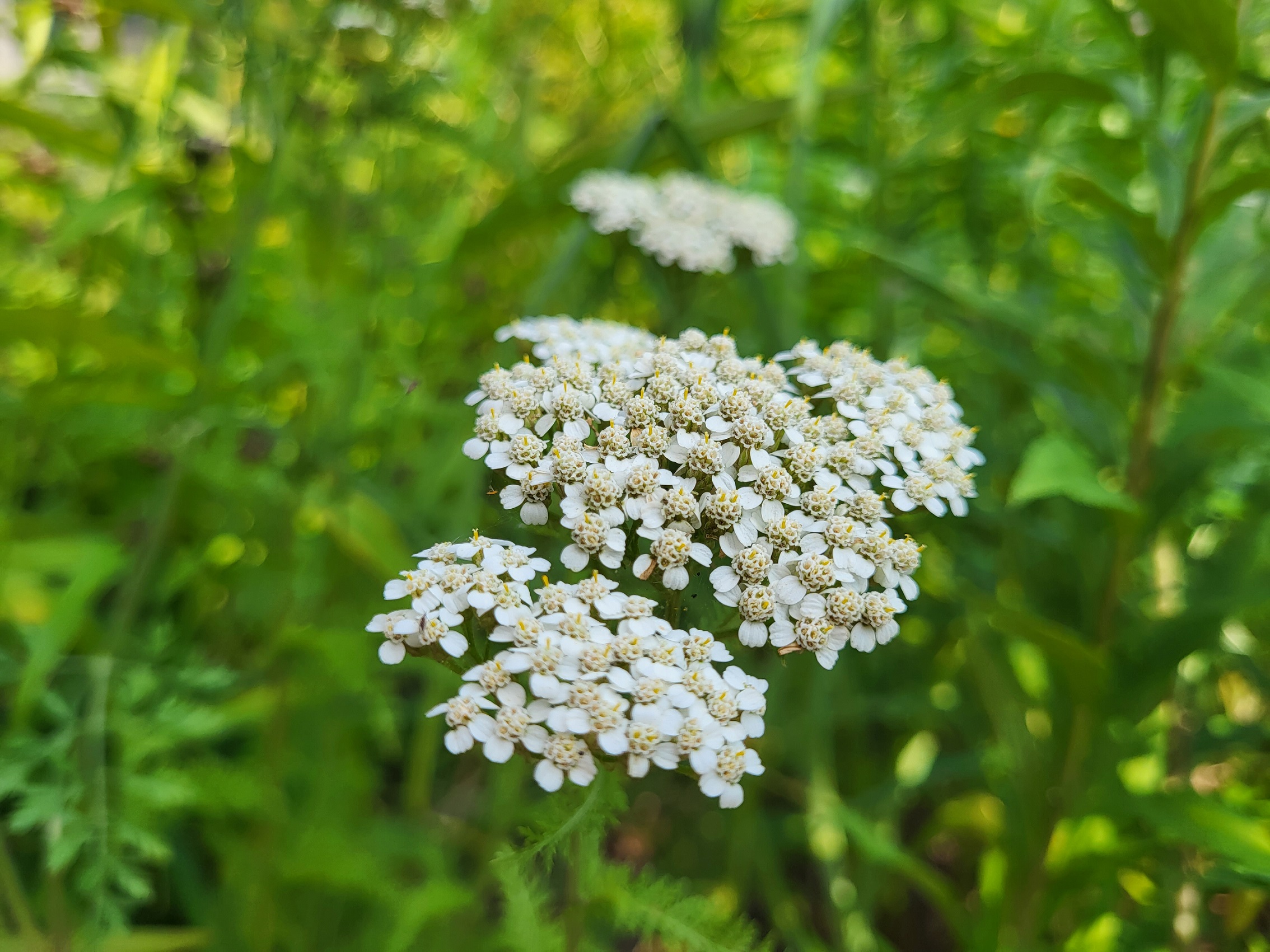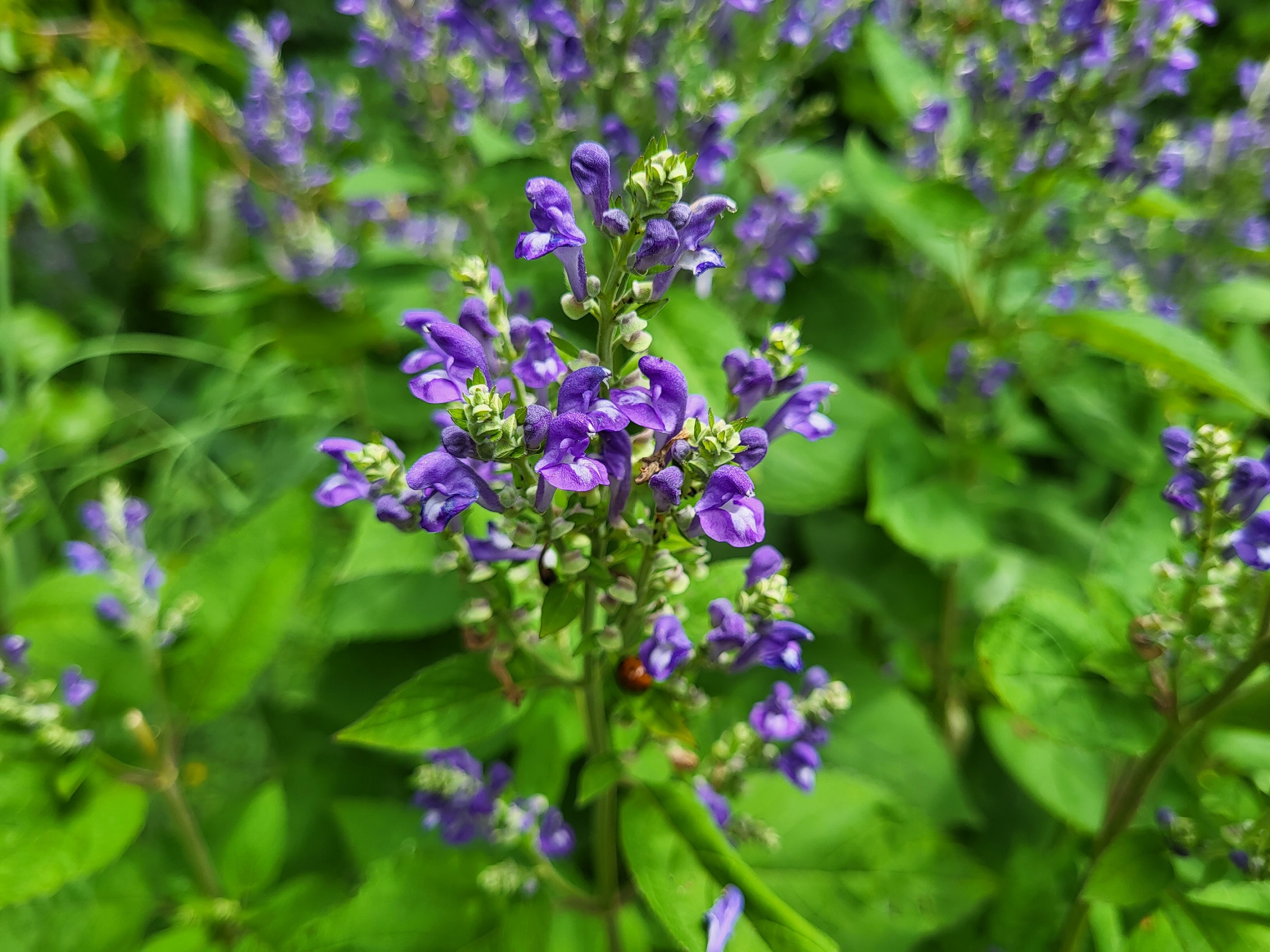Happy Mystery Monday! What prolific native wildflower is blooming in our meadows?
 Last week, we asked you about skullcap (Scutellaria spp.)! There are three recorded species in Caroline County, though the species pictured here is more often found in Maryland’s Piedmont region. We believe this skullcap is downy skullcap (Scutellaria incana) due to its leaf size and shape, plant height, and fuzziness (or pubescence) of the plant. For anyone looking to practice keying out plant species, the Scutellaria provide a great deep dive into plant parts and characteristics. Scutellaria is part of the mint family, so you’ll notice the characteristic square stem and spreading habit. The name Scutellaria comes from the latin Scutella, which means small dish and refers to the remaining calyx after the flower falls off. Skullcap is primarily pollinated by bumblebees, but provides ample nectar to a variety of insects.
Last week, we asked you about skullcap (Scutellaria spp.)! There are three recorded species in Caroline County, though the species pictured here is more often found in Maryland’s Piedmont region. We believe this skullcap is downy skullcap (Scutellaria incana) due to its leaf size and shape, plant height, and fuzziness (or pubescence) of the plant. For anyone looking to practice keying out plant species, the Scutellaria provide a great deep dive into plant parts and characteristics. Scutellaria is part of the mint family, so you’ll notice the characteristic square stem and spreading habit. The name Scutellaria comes from the latin Scutella, which means small dish and refers to the remaining calyx after the flower falls off. Skullcap is primarily pollinated by bumblebees, but provides ample nectar to a variety of insects.
#adkinsarboretum #mysterymonday #pollinatorplant #nativeplants #mysteryplant #skullcap #knowyourplantfamilies
 Adkins Mystery Monday is sponsored by the Spy Newspapers and Adkins Arboretum. For more information go here.
Adkins Mystery Monday is sponsored by the Spy Newspapers and Adkins Arboretum. For more information go here.



Write a Letter to the Editor on this Article
We encourage readers to offer their point of view on this article by submitting the following form. Editing is sometimes necessary and is done at the discretion of the editorial staff.